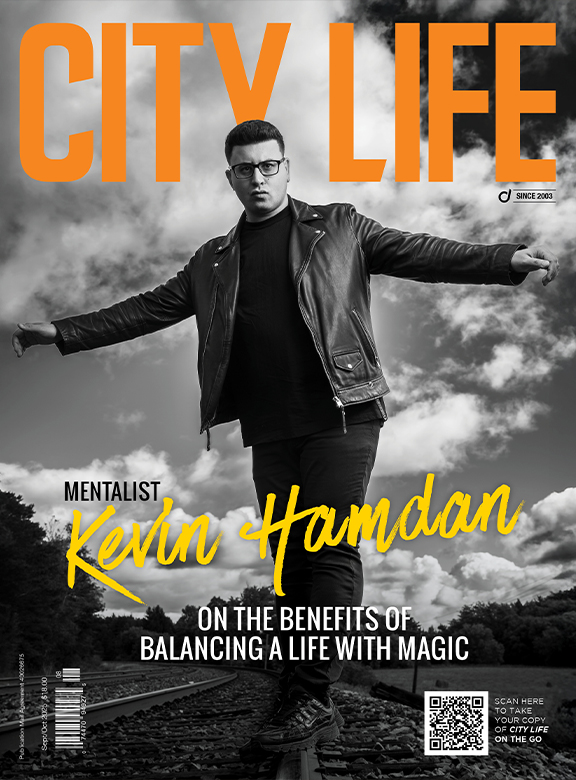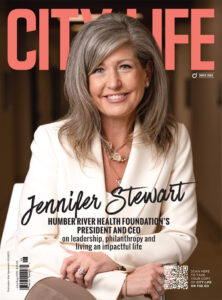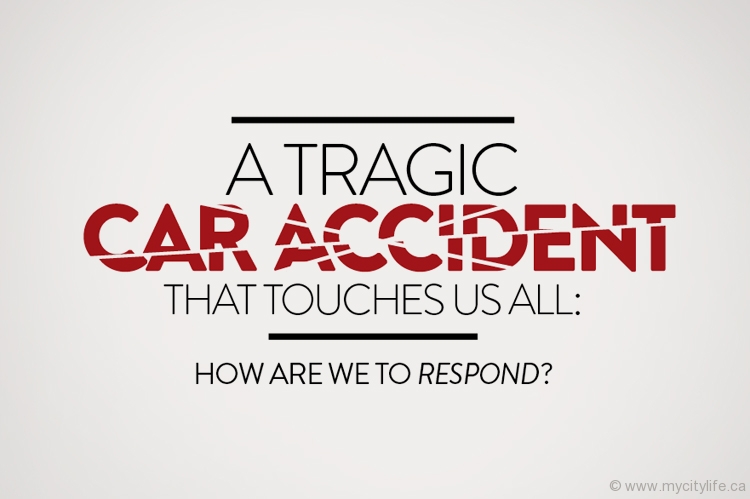A TRAGIC CAR ACCIDENT THAT TOUCHES US ALL: HOW ARE WE TO RESPOND?
UPDATE
March 29, 2016, NEWMARKET, ON — Marco Muzzo was handed a 10-year prison sentence this morning for the tragic car crash that left three children and their grandfather dead.
Muzzo pleaded guilty in February for impaired driving after the crash on Sept. 27, 2015, that killed Gary Neville, 65, and his grandchildren, Daniel, 9, Harrison, 5, and Milagros Neville-Lake, 2.
Superior Court Justice Michelle Fuerst also imposed a 12-year driving ban on Muzzo that will begin after he is released from prison.
Because Muzzo spent most of his time prior to the crash in custody, minus the three weeks he was granted bail following his guilty plea on February 4, his remaining sentence is nine years and four months.
February 24, 2016, NEWMARKET, ON — Marco Muzzo sentencing set for March 29, after apologetic statement read by defendant. Crown asks for 10 to 12 years for his charge of impaired driving causing death of three children and their grandfather in horrific car crash in Vaughan last September. Defence asks for 8 years minus time already served.
February 5, 2016 — Marco Muzzo released on $1-million bail until sentencing hearing on Feb. 23
January 6, 2016 — Marco Muzzo to plead guilty in court on Feb. 4, 2016 regarding Sept. 27 Vaughan collision that killed four.
It was a beautiful Sunday afternoon in late September. All through southern Ontario people were going about their lives, enjoying the lingering warmth of the weekend. It was as if by some lovely magic the summer had been extended and the looming darkness and cold of winter was held at bay.
But by late afternoon a cloud appeared on the blue horizon. Somewhere in the endless news cycle, we heard of yet another car accident on our local roads. A young male driver involved in multiple senseless deaths.
At first, perhaps, we didn’t pay it any special attention as the afternoon drifted into our Sunday nights with family and friends. But something about this story seemed even worse than the others, if that was possible — because of course every death of someone killed on the road is a horror.
What made the news so stunning was that there were three small children involved. They’d been on the road with their grandmother, who was driving, a great-grandmother and their grandfather. Tragically, the children and their grandfather were killed. Our hearts stopped. We had trouble breathing. We were shocked. Consumed with sadness. It was enough to make us weep.
Then came the horror as we learned more: the three kids were the only children of a young couple. These poor parents left alone in the world. How could this happen to such lovely people?
Next came our anger as we found out about the allegations, all of which are still unproven — and, of course, the accused is innocent until proven guilty. According to the media reports, the driver was Marco Muzzo, a third-generation scion of a wealthy family. He had been driving home from the airport. Why? He’d spent the weekend out of town at a bachelor party to celebrate his upcoming wedding. And it sounds as if he walked away from this without a scratch.
And then it gets even worse. The allegation is that the driver was impaired. The whole accident was so horrible that even experienced emergency workers need counselling. The story sends us beyond anger and into rage.
Rage. That is what has been playing out in our private conversations with our friends and family when we talk about this case. The commentators and editorials all express our collective angst. But in the unfiltered world of social media, things have gone even further. Personal attacks aimed at the Muzzo family, tasteless comments made about their ethnic background, and foolish conspiracy theories about the family being able to use its wealth to influence the Crown attorney and the legal system itself.
Where is the line between legitimate outrage and virtual vigilantism?
When I was in law school in the 1970s, and the capital punishment debate was raging, a student confronted our criminal law professor, a man who was firmly against the death penalty.
“How would you react if someone killed your children?” the student demanded. “Wouldn’t you want to see them put to death?”
The professor’s answer has stuck with me to this day. “I wouldn’t just want to have them put to death,” he said, “I’d want to kill them with my bare hands.” The class was stunned. No one had expected him to say that. But then he added: “That’s why we choose to live in a civil society. What I’d want to do and what should be done are two different things. Society is here to restrain me from my primal instincts. That’s what justice is all about.”
His point was profound. Unless we want to live in a society of vigilante justice, we have to find ways to deal with these horrible tragedies that happen in our midst. That’s why we have courts, laws and the judicial system.
As a criminal lawyer I know that there are some cases that seem to take on a life of their own. They touch a collective nerve. The horrible Bernardo case stokes our fear that a rebellious teenage daughter locked out of her home could meet such a sickening end. The Jane Creba murder terrifies us that an innocent teenager out Boxing Day shopping with her family could be gunned down.
Now this — a family wiped out by a rich, young, allegedly drunk driver. It’s the combination of wealth and tragedy that makes this case such a toxic mix.
Back in 1926, F. Scott Fitzgerald had this to say about the rich.
“Let me tell you about the very rich. They are different from you and me. They possess and enjoy early, and it does something to them, makes them soft where we are hard, and cynical where we are trustful, in a way that, unless you were born rich, it is very difficult to understand. They think, deep in their hearts, that they are better than we are because we had to discover the compensations and refuges of life for ourselves. Even when they enter deep into our world or sink below us, they still think that they are better than we are. They are different.”
So much of the narrative we have heard in the news and online feeds into this sentiment: the bachelor party. The private plane. The photos of him in a sports car. The news that he’d previously been ticketed for public intoxication and speeding. The YouTube video of his mother’s interview on a TV cooking show.
Perhaps in literature, and in our daily lives, people with great wealth are “different.” But in the courtroom they are not. We can only have a justice system if it gives even-handed justice to all. Rich and poor, wise and foolish, young and old.
The comments and backlash in social media cross over the line when they turn into personal attacks against the family of an accused person. The senseless search for conspiracy. Ridiculous allegations that the Crown attorneys can be “bought.” Fatuous theories about the undue influence the Muzzo family has because of their wealth. Insulting questions about their ethnicity. Foolish claims that the “high-priced” lawyer can buy him a deal. All of this only undignifies the tragedy. This kind of rage does no one any justice.
It is clear from the news reports that the Muzzo family is a Canadian success story. The randfather, an Italian immigrant, was a hard-working drywaller who started with little and built one of the country’s largest construction companies, and the family is renowned for its philanthropy in the community. What if it was the other way around? And the family was a failure and their accused son was the only one who had been successful? Would that make a difference in the outcome of the case? Of course not.
In the brilliant and underrated film In the Bedroom, based on a Stephen King short story, the college-age son of a New England couple is dating an older woman. He’s an only child. His mother (played by Sissy Spacek, who was nominated for an Oscar for her performance) is concerned about the relationship and wants her son to move away from their small town and go to graduate school. Instead he stays and is murdered by a jealous ex-husband.
This throws the parents into spasms of grief. The mother is irreconcilable in her anger. The father tries to steer a middle ground, but when he realizes that the prosecutor won’t deliver justice, pushed by his grieving wife he takes matters into his own hands.
It is a compelling study of a decent man who slips over the edge. As you watch the film, you find yourself wanting him to do the deed, wanting him to get away with revenge and murder. That’s the point of the film. When there seems to be no means for justice, even good people do bad things.
Winston Churchill famously once said, “Democracy is the worst form of government except for all others.” The same holds true for our justice system.
Everyone who has heard about the car accident on that sunny Sunday afternoon wishes they could turn back the clock. There are a thousand “what-ifs” that could have prevented this. What if the plane had landed five minutes later? What if the accused had taken a limo home? What if the grandmother had driven through the intersection five minutes earlier? Even five seconds earlier?
But fate does not work that way.
A case such as this one tests us to our core. It feeds in us the same urges. But we as a society have to face senseless tragedies. And learn from them.
That’s why we have coroner’s inquests. That’s why we have inquiries set up to deal with specific types of crime. That’s why the media reports on criminal trials so eagerly and why our legislatures are constantly writing new laws. Every year I get a new edition of the Criminal Code of Canada and every year it is thicker.
When it comes to drinking and driving, for decades now there’s been a push to eradicate it. We now have much tougher laws. Broader education. Yes, there’s been a concerted effort to change the conversation.
And how frustrating in the extreme is it that we still hear these terrible stories. Recently a student at Western University was walking on campus when a car jumped the curb and killed her. The allegation is that the driver was impaired. In the same month, a 60-year-old Mississauga woman was killed and three others injured in a two-vehicle collision on the southbound lanes of Highway 400. The driver of the other car faces multiple charges including impaired driving causing death. Then there was a late-night accident involving a young driver who ended up killing himself by smashing into a tractor-trailer. Again, based on media reports it appears that alcohol may have been involved.
I invite you to go to any Provincial Courthouse in Ontario and you will see that a large percentage of the cases, still, are impaired driving charges.
I for one believe there should be zero tolerance for any alcohol when people are driving. Take a look at the laws in Sweden and Japan. In Sweden the blood-alcohol limit is .02 (it is .08 for adults in most of Canada). In Japan it is zero. In both countries, drinkers have largely adapted to the tough rules and rely on designated drivers and cabs.
In Scotland a tough law was brought in late last year. To quote from an article about the law in the British newspaper The Independent:
“The new law, which came into force in December, reduced the legal alcohol limit for Scottish motorists from 80 mg to 50 mg in every 100 ml of blood. Drivers have been warned that having ‘no alcohol at all’ is the only way to ensure they stay within the limit — and to avoid planning car journeys for the morning after a night drinking.
“A Scottish Government spokesperson said the country was ‘leading the way across the U.K.’ by introducing the new law. ‘Alcohol at any level impairs driving, which is why our message is if you’re driving, the best approach is none,’ they added.”
To me it’s a question of totally transforming the culture. Let the government set aside a billion dollars. Yes, a billion dollars, or even two.
Set up a fund to indemnify restaurants and clubs for their loss of revenue. Set up designated driver clubs in each and every community. Involve seniors and underemployed people with clean driving records to get people home safely. Make it the No. 1 national mission in Canada to banish all drinking and driving.
You don’t agree? Take a look at those three young children killed when out for a drive with their grandparents and tell me what price we wouldn’t all pay to have them back.
Until that day, when every single incident of impaired driving is ended, there is only one place we can go as a society to move forward. The courtroom. It’s where we must take our grief and grievances, our shock and horror and anger, and try as best we can to make sense of the senseless.
Robert Rotenberg has been a criminal lawyer in Toronto for 25 years. He is also the author of four bestselling novels.

















































































2 Comments
Wow. Amazing article. Love the suggestions to end impaired driving. The wheels are already turning as to how to implement some of these ideas in my community!
Hi Sheena,
Thank you for your feedback. We are happy to see the community is coming together to raise awareness for impaired driving. Our wish is that we will live in a society that is free of impaired driving so that no family will go through what the Neville-Lake family and thousands of other Canadian families have had to endure due to this irresponsible act.